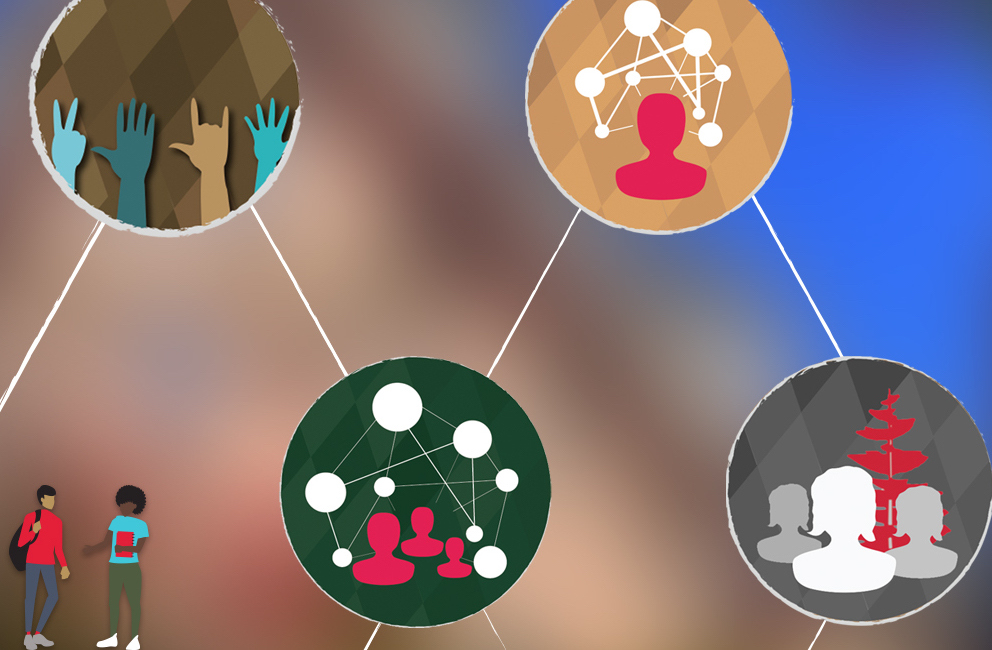In the summer of 2020, the Honors College created six virtual Changemaking Communities as part of the Virtual HC to provide an opportunity for students to engage with each other during the COVID-19 pandemic, when attending college virtually made staying connected much more difficult. The communities are virtual spaces dedicated to exploring community service, civic engagement, and social justice, which are central to the Honors College mission.
Last year, more than 600 students in all participated and worked together to address a year-long themed discussion, each unique to their community. Honors College students worked toward creating social change together—even while physically apart.
Honors College Changemaking Community themes included:
- Active Allyship for Social & Racial Justice
- Career with Purpose: Living & Working Meaningfully
- Community-Based Scholars: Service in Academia
- Douglass Honors College Coalition Changemakers
- Exploring Interdisciplinary & Global Perspectives
- Social & Civic Responsibility
Each of these mission-driven themes, created with student feedback, worked to develop students’ purpose, whether through their academic pursuits, career goals, or personal development. Each community was led by Changemaking Community Facilitators, student leaders who hosted programs related to their topics and posted regular discussion prompts to engage their community members.
The last academic year was challenging for all students, but the Changemaking Communities provided a place to gather when our community members were looking for connection. Each Community Facilitator provided social and educational outlets for students through their programs, hosting at least three each semester. Their contributions were especially impactful in helping to build an inclusive space for our students to grow and thrive.
Last academic year alone:
600+ HC students across class years participated
8,500+ hours of service were logged
50 events were organized by students for each other, for HC students at large, and some for ALL Rutgers students, including nearly 30 programs in the spring focused on topics like Celebrating Black Joy, Keys to LGBTQ+ Allyship, and Candid Conversations on Women in the Workplace.
From events focused on the 2020 presidential election to Netflix watch parties and book club sessions reading How to be an Anti-Racist, Honors College students have discovered a new meaning of engagement on campus. While we still have much to learn and develop in our Changemaking Communities, student facilitators and participants have inspired us to move forward in this new digital world, together.
These communities are now serving as an opportunity for engaging students this coming academic year as we return to campus. Going forward, the Changemaking Communities will have an overarching theme focused on socially responsible leadership—defined as individual, group, and community development for social change. Students will develop important skills and engage in building a safe and inclusive community with each other.
Four themed Changemaking Communities will exist in a purely virtual format for students not living in honors housing. Students living in the Honors College and in our returning student Honors College communities across campus will gather in person for their Changemaking Community work. All of the communities will be led by Changemaking Community Mentors.
Below are highlighted Changemaking Community events that took place this past year and were open to all Rutgers students.
Some of the organizers shared their thoughts.
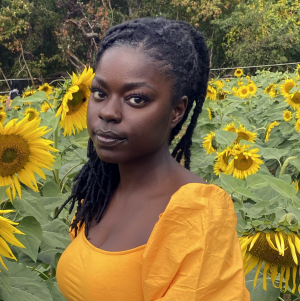
Sabrina Lima (’21 SAS/HC)
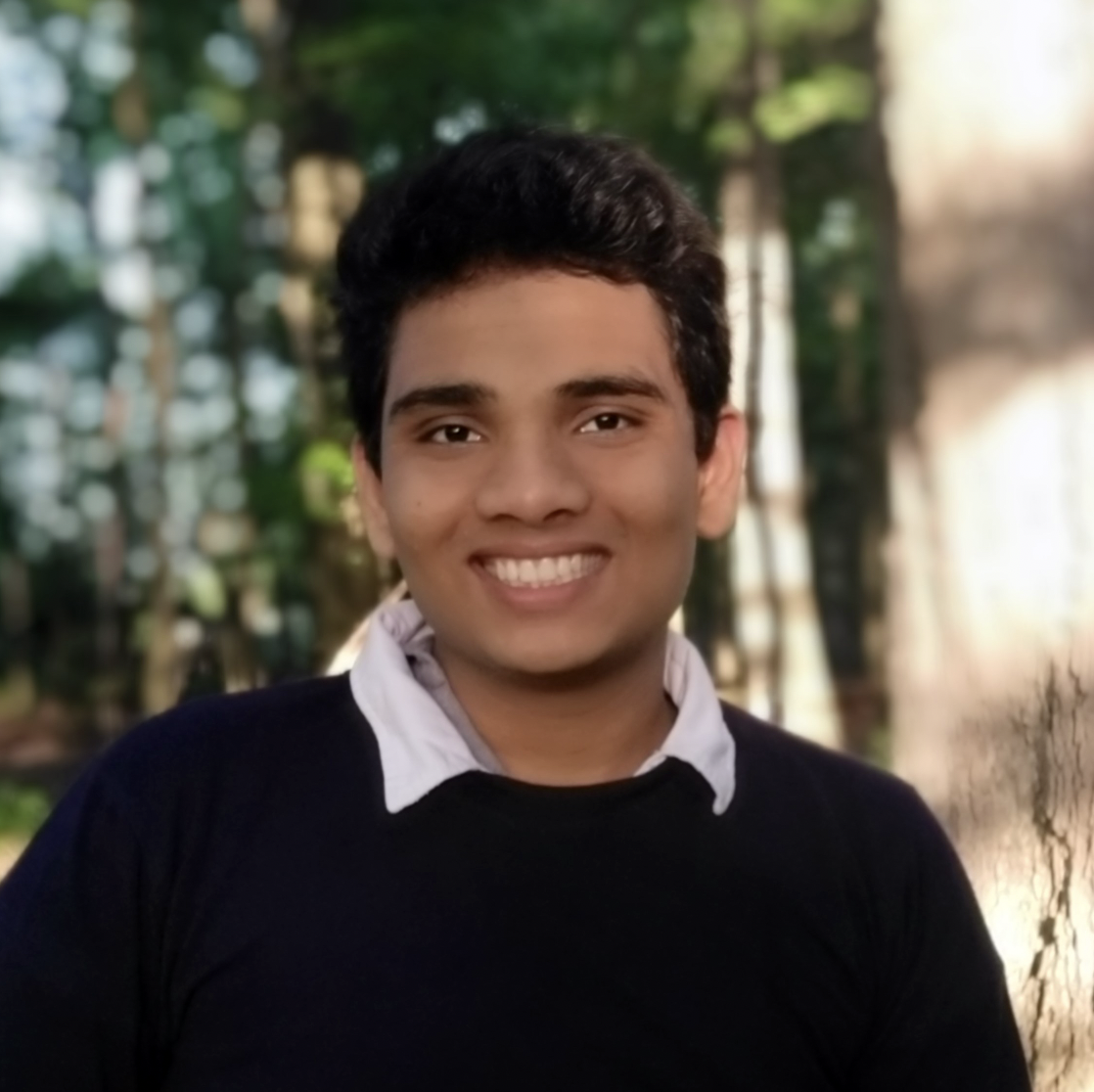
Prince Rawal (’23, SAS/HC)
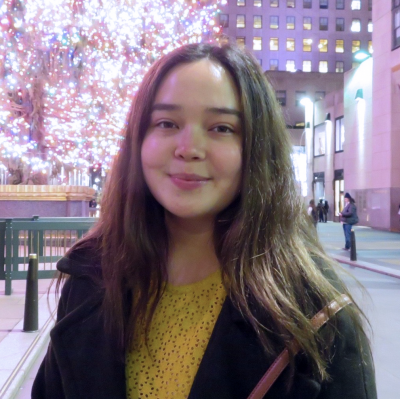
Peristera Vikatos (’23, SEBS/HC)
Black Joy
Black Joy was a night dedicated to highlighting the joys of Black culture. It took place in February 2021 and was open to all Rutgers students.
Sabrina Lima (’21 SAS/HC): Often times Black History Month events focus on all the adversity Black Americans have overcome and how other communities can serve as better allies to the Black community. Although these events are amazing, they sometimes are triggering or burdensome to the Black community when Black History Month is truly a celebration. The Black joy event was broken into two acts: one dedicated to joyful testimonies from Black Rutgers students sharing aspects or hobbies in their life that exemplify Black joy, and the second called all participants to participate in a virtual game of “HC family” feud where participants were able to vote on the greatest components of Black culture. The planning of this event was truly a community effort! The process was even more rewarding because I was honored to work alongside one of the first Black friends I made at the Honors College. It was rewarding overall because each person contributed equally and with the same motivation and passion to host a welcoming and exciting event, even if they did not personally identify as a Black student. This acted as an unconscious reminder that Black history is American history and Black history is not just trauma and milestones but fully encased in joy.
Rutgers Celebrates LGBTQ+ History Month
This event was created for students to learn more about the history of LGBTQ+ activism and how it translates to 2020. It took place in October of 2020 and was open to all Rutgers students.
Prince Rawal (’23, SAS/HC): We first played a game of trivia about the history of the LGBTQ+ community and recent progress made by different countries worldwide. Afterward, we had a discussion led by Wilhelmina Vargas, a Rutgers CAPS Community-based Counselor, about people's experiences within the LGBTQ+ community from different cultural perspectives. Everyone needs space to express themselves, and sometimes it is either not available, or the existing one isn't very comfortable. They also need a community to share experiences with and not feel alone. As community facilitators, we provided a platform where everyone was comfortable sharing their thoughts and feelings and felt like they belonged. It was great to learn from different people's backgrounds about the history of the LGBTQ+ community in various cultures and countries.
Native Innovations
The Smithsonian National Museum of the American Indian partnered with the Honors College Changemaking Communities to celebrate Native American Heritage Month for a December 2020 event that was open to all Rutgers students.
Peristera Vikatos (’23, SEBS/HC): The museum brought a virtual interpretive exhibition to the Honors College, which explored scientific and technological innovations of Native communities, the original innovators of the Americas. The experience highlighted the significance of the propagation of maize by indigenous communities and detailed why the preservation of this history is essential. It called upon us as a community to be more conscious of the land on which we live and more respectful of the diverse communities that have contributed so much to our understanding of the world, communities whose justice is long overdue. Planning this effort with my co-facilitators was a rewarding experience that allowed us to facilitate a meaningful community conversation on Native American history, ultimately bringing to the Honors College a creative way to utilize education as a vessel for justice. The positive response we received following the event communicated to us that the Honors College community is passionate about this movement, and we look forward to planning more events in the future.
Honors College student leaders (Changemaking Community Facilitators) and community participants shared their experiences and perspectives in their own voices.
Active Allyship for Social & Racial Justice
Changemaking Community Facilitator - Mackenzie Lawson (’23, SEBS/HC/DRC)
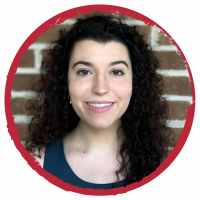 Changemaking centers around building a growth community. This year brought surprises and challenges, but I think we had a unique opportunity to build a community focused on allyship. My co-facilitators and I sparked meaningful conversations allowing everyone to share perspectives and learn from each other, discuss aspects of allyship, and learn how to carry out ideas of allyship in our own lives. Before the presidential election last fall, we held a voter panel. Students and first-time voters explored voting plans and shared voter information with friends and family. The panel discussed systemic voter oppression history, the impact of votes from women and minority groups, and the historical then nomination and now election of Vice President Kamala Harris. This panel brought together students and voters from the Rutgers community. Being an ally and creating change can be lifelong aspirations and the first step starts within our own community.
Changemaking centers around building a growth community. This year brought surprises and challenges, but I think we had a unique opportunity to build a community focused on allyship. My co-facilitators and I sparked meaningful conversations allowing everyone to share perspectives and learn from each other, discuss aspects of allyship, and learn how to carry out ideas of allyship in our own lives. Before the presidential election last fall, we held a voter panel. Students and first-time voters explored voting plans and shared voter information with friends and family. The panel discussed systemic voter oppression history, the impact of votes from women and minority groups, and the historical then nomination and now election of Vice President Kamala Harris. This panel brought together students and voters from the Rutgers community. Being an ally and creating change can be lifelong aspirations and the first step starts within our own community.
Student - Ravi Raghavan (’24, SOE/HC)
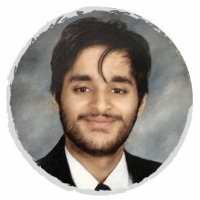 Being a changemaker requires a courageous individual who stands up for others, while having a willingness to forego conventional wisdom. Being a changemaker requires one to always take the high ground, to stay the course, and to continue a positive belief in the change you’re creating. Within the Active Allyship for Social & Racial Justice Changemaking Community, we are aware of the things going on around us. In order to enact change, we need a significant portion of the population to be aware and on board. I educate myself by vigilantly seeing what's going on around me, and I take time to research issues, to see their evolution over time. I enjoyed the "Helping, Fixing, and Serving" event because it drew a fine line between the three aforementioned words and how good intentions may sometimes have unintended consequences. Approaching volunteering with the right mindset can benefit both parties.
Being a changemaker requires a courageous individual who stands up for others, while having a willingness to forego conventional wisdom. Being a changemaker requires one to always take the high ground, to stay the course, and to continue a positive belief in the change you’re creating. Within the Active Allyship for Social & Racial Justice Changemaking Community, we are aware of the things going on around us. In order to enact change, we need a significant portion of the population to be aware and on board. I educate myself by vigilantly seeing what's going on around me, and I take time to research issues, to see their evolution over time. I enjoyed the "Helping, Fixing, and Serving" event because it drew a fine line between the three aforementioned words and how good intentions may sometimes have unintended consequences. Approaching volunteering with the right mindset can benefit both parties.
Career with Purpose: Living & Working Meaningfully
Changemaking Community Facilitator - Swetha Sathi (’21, SAS/HC)
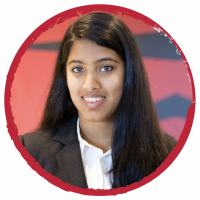 As a changemaker and community facilitator, I help broaden students’ perspectives and equip them with the skills necessary to seek meaning in their career and life. It is amazing how this role expanded my own world view and allowed me to find meaning in my life. In the fall, our community co-hosted the “Unpacking Our Implicit Biases” program. During this event, Rutgers psychology students discussed the science behind implicit biases and how to reduce such biases, especially within the workplace. Following the event’s lecture portion, we led attendees through a meaningful conversation. As an aspiring physician, this program directly related to my career goals and guided my understanding of implicit biases and how they might manifest in my career. Although reducing implicit biases is a lifelong process, this event was a stepping stone that encouraged a constant challenge of my biases to pursue an open-minded and rewarding lifestyle.
As a changemaker and community facilitator, I help broaden students’ perspectives and equip them with the skills necessary to seek meaning in their career and life. It is amazing how this role expanded my own world view and allowed me to find meaning in my life. In the fall, our community co-hosted the “Unpacking Our Implicit Biases” program. During this event, Rutgers psychology students discussed the science behind implicit biases and how to reduce such biases, especially within the workplace. Following the event’s lecture portion, we led attendees through a meaningful conversation. As an aspiring physician, this program directly related to my career goals and guided my understanding of implicit biases and how they might manifest in my career. Although reducing implicit biases is a lifelong process, this event was a stepping stone that encouraged a constant challenge of my biases to pursue an open-minded and rewarding lifestyle.
Student - Aman Gupta (’21, RBS/HC)
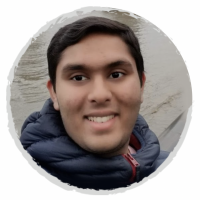 A changemaker is someone who can create change for even one other person, and in a leadership role, can even inspire others to make a difference for themselves and others around them, paving the way for future change. In my Changemaking Community, I have learned about finding balance in my own work and life, understanding when to say “no” so I can focus on creating meaningful things for myself. I now have the tools to better support others as a student leader, applying some of the same mentorship principles that my Changemaking Community facilitators shared. As a business student, I was able to apply the social mission of my Community to my studies, seeing for example, the importance of Corporate Social Responsibility (CSR), which I learned about through one of our community discussion posts. I have begun evaluating companies on CSR initiatives in addition to their business models.
A changemaker is someone who can create change for even one other person, and in a leadership role, can even inspire others to make a difference for themselves and others around them, paving the way for future change. In my Changemaking Community, I have learned about finding balance in my own work and life, understanding when to say “no” so I can focus on creating meaningful things for myself. I now have the tools to better support others as a student leader, applying some of the same mentorship principles that my Changemaking Community facilitators shared. As a business student, I was able to apply the social mission of my Community to my studies, seeing for example, the importance of Corporate Social Responsibility (CSR), which I learned about through one of our community discussion posts. I have begun evaluating companies on CSR initiatives in addition to their business models.
Community-Based Scholars: Service in Academia
Changemaking Community Facilitators - Catherine Kratka (’23, SAS/HC) & Gavin Wagner (’23, SEBS/HC)
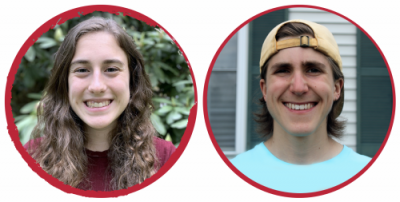 We all have the power to make small changes in our lives. If we consider them alone, they often seem minuscule. However, we enhance the impact of our efforts if we couple them with similar efforts of others. It takes a lot of energy to encourage, enable, and sustain collective action, but this is where changemakers step in. Our community helps changemakers find interdisciplinary passions and learn how to give back meaningfully. This semester, we were able to connect students with Faculty Fellows through a series of game nights. After Jeopardy Game Night, there was a great discussion about Dr. Chayko’s interests in communications and social media, and the different courses that she teaches. I [Catherine] loved these programs because it reminded me of events similar to Chili with Chayko, but in a virtual setting, where students could get to know the Faculty Fellows on a more personal level.
We all have the power to make small changes in our lives. If we consider them alone, they often seem minuscule. However, we enhance the impact of our efforts if we couple them with similar efforts of others. It takes a lot of energy to encourage, enable, and sustain collective action, but this is where changemakers step in. Our community helps changemakers find interdisciplinary passions and learn how to give back meaningfully. This semester, we were able to connect students with Faculty Fellows through a series of game nights. After Jeopardy Game Night, there was a great discussion about Dr. Chayko’s interests in communications and social media, and the different courses that she teaches. I [Catherine] loved these programs because it reminded me of events similar to Chili with Chayko, but in a virtual setting, where students could get to know the Faculty Fellows on a more personal level.
Student - Zoe Reich (’24, SAS/HC)
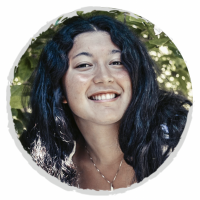 Changemaking is an act that happens naturally. It is the byproduct of genuine thoughts about what one person can do to positively impact others. More than that, changemaking is an equilibrium where the giving reaches an equal quantity on both sides. Within my community, I attended events where we discussed community service and chatted about future goals. My community facilitators helped me feel at home in the Honors College. I felt comfortable to share my aspirations and determine how I can pursue my passions. During the community service centered meetings, the HC Serves leaders and my community explored what community service should be about, serving rather than fixing with a mutual sense of serving. My community connected with student leaders to explore research for social good as they shared their experiences with the Aresty program and how it pertained to the real world.
Changemaking is an act that happens naturally. It is the byproduct of genuine thoughts about what one person can do to positively impact others. More than that, changemaking is an equilibrium where the giving reaches an equal quantity on both sides. Within my community, I attended events where we discussed community service and chatted about future goals. My community facilitators helped me feel at home in the Honors College. I felt comfortable to share my aspirations and determine how I can pursue my passions. During the community service centered meetings, the HC Serves leaders and my community explored what community service should be about, serving rather than fixing with a mutual sense of serving. My community connected with student leaders to explore research for social good as they shared their experiences with the Aresty program and how it pertained to the real world.
Douglass Honors College Coalition Changemakers
Changemaking Community Facilitator - Jackie Mehr (’22, SEBS/HC/DRC )
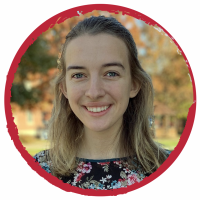 Changemakers strive to make a positive impact on the world. In our Honors College Changemaking Communities, we act as changemakers by aiming to educate ourselves on issues faced by the world and causes in need of more support. We pull from our strengths and experiences in establishing our respective paths towards change. Coming together in our community encourages gaining inspiration from one another and building on our strengths to maximize positive change induced by our actions. The Douglass Honors College Coalition Changemaking Community taught me the importance of coming together to make change. In a virtual learning environment, it’s easy to feel isolated and to try to personally shoulder all of the change you want to inspire. Listening to the voices of those around you and working with others is crucial to integrating new perspectives, avoiding burnout, and ensuring that change is purposeful and meaningful.
Changemakers strive to make a positive impact on the world. In our Honors College Changemaking Communities, we act as changemakers by aiming to educate ourselves on issues faced by the world and causes in need of more support. We pull from our strengths and experiences in establishing our respective paths towards change. Coming together in our community encourages gaining inspiration from one another and building on our strengths to maximize positive change induced by our actions. The Douglass Honors College Coalition Changemaking Community taught me the importance of coming together to make change. In a virtual learning environment, it’s easy to feel isolated and to try to personally shoulder all of the change you want to inspire. Listening to the voices of those around you and working with others is crucial to integrating new perspectives, avoiding burnout, and ensuring that change is purposeful and meaningful.
Student - Peyton Jordan (’24, RBS/HC/DRC)
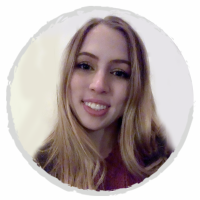 As a changemaker, I am responsible for being an active member of my community, advocating for the silenced, and holding in my heart equality and human rights for all. Our community exposed me to civic engagement and self-empowerment. One of my favorite posts was our “Motivational Monday” commentary on "Elation, Frustration: For Women, Kamala Harris' Win is a Big Step, but Long Overdue." No matter your opinions or political affiliation or your views on Kamala Harris, her Vice Presidency is a huge step for women and minorities. She symbolizes progress in a patriarchal, systematically flawed society. She gives hope for our future. With her position, more people of color have the possibility of being leaders and policy makers—and to be represented. As a Hispanic woman, I am happy to see this change, to finally have a victory. It inspires me. It makes me want to take action as well.
As a changemaker, I am responsible for being an active member of my community, advocating for the silenced, and holding in my heart equality and human rights for all. Our community exposed me to civic engagement and self-empowerment. One of my favorite posts was our “Motivational Monday” commentary on "Elation, Frustration: For Women, Kamala Harris' Win is a Big Step, but Long Overdue." No matter your opinions or political affiliation or your views on Kamala Harris, her Vice Presidency is a huge step for women and minorities. She symbolizes progress in a patriarchal, systematically flawed society. She gives hope for our future. With her position, more people of color have the possibility of being leaders and policy makers—and to be represented. As a Hispanic woman, I am happy to see this change, to finally have a victory. It inspires me. It makes me want to take action as well.
Exploring Interdisciplinary & Global Perspectives
Changemaking Community Facilitator - Jilly Matje (’23, SAS/HC)
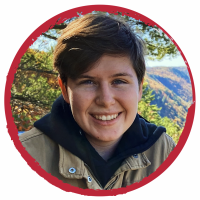 Being a Changemaker means continuing the goal that we set out when first joining the Honors College: to search for needs in the community and become educated and active about working to fulfill those needs. This goal includes educating ourselves about other people’s lives, especially their everyday difficulties. Learning about others and listening to their perspectives is the crucial first step to make change. After educating, we need to devise a plan for how we personally can help foster a positive effect. Spreading encouragement to participate in impactful events keeps students engaged and effectual in decisions that will have a direct impact on their lives and community members’ lives. In our community, we also host programs that tackle problems that have increased with the advent of virtual schooling, like our SMART planning program that conveyed effective goal-setting techniques. Our community focuses on sharing new perspectives to members so they can better impact others.
Being a Changemaker means continuing the goal that we set out when first joining the Honors College: to search for needs in the community and become educated and active about working to fulfill those needs. This goal includes educating ourselves about other people’s lives, especially their everyday difficulties. Learning about others and listening to their perspectives is the crucial first step to make change. After educating, we need to devise a plan for how we personally can help foster a positive effect. Spreading encouragement to participate in impactful events keeps students engaged and effectual in decisions that will have a direct impact on their lives and community members’ lives. In our community, we also host programs that tackle problems that have increased with the advent of virtual schooling, like our SMART planning program that conveyed effective goal-setting techniques. Our community focuses on sharing new perspectives to members so they can better impact others.
Student - Adrienne Yu (’24, RBS/HC)
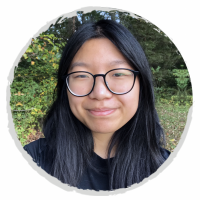 It’s easy to associate changemaking with activism, but the root is change, preferably positive: in procrastinating a little less, joining a club, or helping a friend with homework (while following academic integrity, s’il vous plait). "Imposter Syndrome and Identity Among Us'' was hosted by our changemaking community. Our event explored imposter syndrome, doubting your abilities or self-worth, mixed with a fear of being exposed as an imposter. Imposter syndrome shadowed many of my past interactions, stopping me from joining clubs or attempting contests. Our mentors shared instances of overcoming self-doubt, topped off with a couple rounds of Among Us, promoting understanding in a no pressure environment (shoutout to Christina for an excellent speech). That’s how I want to spend all my evenings. This atmosphere of supportive conversation is one I believe will carry through our community’s interactions.
It’s easy to associate changemaking with activism, but the root is change, preferably positive: in procrastinating a little less, joining a club, or helping a friend with homework (while following academic integrity, s’il vous plait). "Imposter Syndrome and Identity Among Us'' was hosted by our changemaking community. Our event explored imposter syndrome, doubting your abilities or self-worth, mixed with a fear of being exposed as an imposter. Imposter syndrome shadowed many of my past interactions, stopping me from joining clubs or attempting contests. Our mentors shared instances of overcoming self-doubt, topped off with a couple rounds of Among Us, promoting understanding in a no pressure environment (shoutout to Christina for an excellent speech). That’s how I want to spend all my evenings. This atmosphere of supportive conversation is one I believe will carry through our community’s interactions.
Social & Civic Responsibility
Changemaking Community Facilitator - Hanna Brancaccio (’22, SAS/HC)
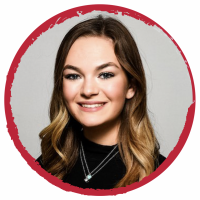 Changemaking means parlaying my passions and values into a vehicle to catalyze positive change within the communities I’m a part of. Coming of age in the midst of all this social and political chaos gives us a certain responsibility to educate ourselves as much as possible and actively work towards a more equitable future. The theme of “Social and Civic Responsibility” gives the co-facilitators and myself flexibility to explore and initiate discussion on a variety of topics. We consciously centered posts around current events, encouraging our community members to think critically about the world. For example, we’ve made Teams posts covering everything from the death and legacy of Ruth Bader Ginsburg and the Supreme Court Justice nomination that followed, the election, and the Inauguration to the events of January 6th and the recent GameStop fiasco. When curating posts, I include an objective source alongside questions that spark analytical reflection.
Changemaking means parlaying my passions and values into a vehicle to catalyze positive change within the communities I’m a part of. Coming of age in the midst of all this social and political chaos gives us a certain responsibility to educate ourselves as much as possible and actively work towards a more equitable future. The theme of “Social and Civic Responsibility” gives the co-facilitators and myself flexibility to explore and initiate discussion on a variety of topics. We consciously centered posts around current events, encouraging our community members to think critically about the world. For example, we’ve made Teams posts covering everything from the death and legacy of Ruth Bader Ginsburg and the Supreme Court Justice nomination that followed, the election, and the Inauguration to the events of January 6th and the recent GameStop fiasco. When curating posts, I include an objective source alongside questions that spark analytical reflection.
Student - Gad Raganas (’26, EMSOP/HC)
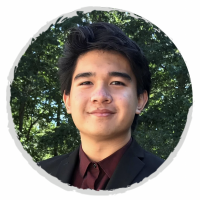 Changemaking starts with personal improvement. Stepping back to look in the mirror, and think about what you want to do differently, new things to explore, and ways of self-improvement. Changemaking is as much self-exploration as it is outreach: effecting positive change in our communities starts by changing something about ourselves for the better. As much as we want to change the world, it's worth it to step back and see how the world changes us. During the spring semester, I plan to volunteer with MissingMaps— a virtual platform where volunteers take satellite data of economically disadvantaged and underserved communities to improve maps to create better planned and coordinated recovery efforts. For video games and tabletop RPGs, I have made maps so MissingMaps offers a path to apply these interests by helping with a pressing issue worldwide.
Changemaking starts with personal improvement. Stepping back to look in the mirror, and think about what you want to do differently, new things to explore, and ways of self-improvement. Changemaking is as much self-exploration as it is outreach: effecting positive change in our communities starts by changing something about ourselves for the better. As much as we want to change the world, it's worth it to step back and see how the world changes us. During the spring semester, I plan to volunteer with MissingMaps— a virtual platform where volunteers take satellite data of economically disadvantaged and underserved communities to improve maps to create better planned and coordinated recovery efforts. For video games and tabletop RPGs, I have made maps so MissingMaps offers a path to apply these interests by helping with a pressing issue worldwide.
